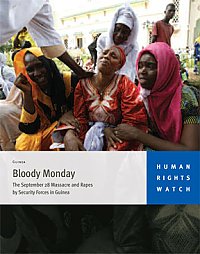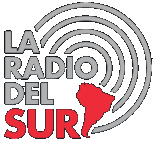I wish Senator Obama had never written the op-ed about his Cuba policy (see below), but it seems to be a pre-requisite for his upcoming campaign stop in Miami. From a content standpoint, there is precious little: Fidel bashing, “democracy” pushing, “freedom” delivering, and a faint possibility of easing travel restrictions for Cuban-Americans wishing to visit their families in Cuba. As for tone, it is chock full of the usual propaganda about Fidel and Cuba and is just as predictable, unsophisticated, and unfounded.
Most people are all a twitter about Obama’s consideration of easing restrictions regarding Cuba and see it as a beginning of the two countries’ de-frost where lounging on a beach while sipping Mojitos seems within reach. Then, there are others who swallow their disgust at Obama’s bargaining chip – democracy – but think there is a glimmer of hope. And, then there is me and maybe a few others, who see no improvement in US-Cuba relations based on Obama’s plan and abhor all the lies he repeats in his op-ed about Cuba and its people. It is the repetition of these kinds of lies that has maintained the US embargo against Cuba for nearly 50 years.
I think Obama would be wise to study up on Cuba’s history and politics and especially Fidel Castro’s role. He is certain to get questions, more from the left than the right, over the coming months about his “policy” and I am not sure he has the answers.
Obama should be pressed on his op-ed. If I had a chance to pose questions to him, here is what I would ask:
-Other than having it pounded into your head as a little boy, like most of us, what is it about Fidel Castro that makes him a dictator? Please be specific.
-Based on your knowledge of the Cuban electoral system, what part of it is undemocratic? Please be specific.
-You state that you want to spread the message of freedom in Cuba. In what form will this freedom come? Will it include free health care and education, as Cubans have now, or will you advocate privatization of these services?
-You raise the issue of “the Castro regime’s deplorable March 2003 jailing of 75 of Cuba’s most prominent and courageous dissidents . . .” Are you aware that more than adequate proof was presented at their trials that they took money from the US government (through the US Interests Section in Havana) in order to de-stabilize their own government? These are treasonous acts that, had they been committed by US citizens against the US government, would have resulted in very long jail sentences.
– You state in your op-ed, “We all know the power of the freedom and opportunity that America at its best has both embodied and advanced. If deployed wisely, those ideals will have as transformative effect on Cubans today as they did on my father more than 50 years ago.” Would this be anything like the transformative effect the US government has had on El Salvador, Haiti and Iraq?
And, if I had any time left, I would share some history with Senator Obama:
Do you have any idea what the Cuban revolution did for black people? Do you realize how many black people learned to read in the first two years of the revolution and how many received health care for the first time in their lives? Do you know how many black doctors, scientists, and engineers Cuba has produced whose parents had little more than the clothes on their back?
As the son of an African, you should brush up on African liberation struggles to understand what Cuba and Fidel Castro mean to the peoples of the world and to realize how uninformed and unfortunate your characterizations are.
Cuba played a significant role in the Congo, Guinea-Bissau, and Mozambique. Yet, it was in Angola where Cuba had the greatest impact. In 1975, Fidel sent the Cuban army to aid the Popular Movement for the Liberation of Angola (MPLA) against the South African army. The Cubans trounced South Africa signaling the denouement for apartheid in South Africa.
Finally, it is Amilcar Cabral, a freedom fighter in Guinea-Bissau, who summed it up best: “Cuban fighters are ready to lay down their lives for the liberation of our countries, and in exchange for this aid to our freedom and the progress of our people, all they take from us are their comrades who fell fighting for freedom.”
Senator Obama, I don’t think the Cubans need us to liberate them, rather we need to liberate ourselves from thinking we have the corner on freedom and democracy. The Cubans could teach us a lot. It is from this standpoint that you should be thinking.
Miami Herald
Posted on Tue, Aug. 21, 2007
Our main goal: Freedom in Cuba
By BARACK OBAMA
When my father was a young man living in Kenya, the freedom and opportunity
of the United States exerted such a powerful draw that he moved halfway
around the world to pursue his dreams here. My father’s story is not unique.
The same has been true for tens of millions of people, from every continent
— including for the many Cubans who have come and made their lives here
since the start of Fidel Castro’s dictatorship almost 50 years ago.
It is a tragedy that, just 90 miles from our shores, there exists a society
where such freedom and opportunity are kept out of reach by a government
that clings to discredited ideology and authoritarian control. A democratic
opening in Cuba is, and should be, the foremost objective of our policy. We
need a clear strategy to achieve it — one that takes some limited steps now
to spread the message of freedom on the island, but preserves our ability to
bargain on behalf of democracy with a post-Fidel government.
The primary means we have of encouraging positive change in Cuba today is to
help the Cuban people become less dependent on the Castro regime in
fundamental ways. U.S. policy must be built around empowering the Cuban
people, who ultimately hold the destiny of Cuba in their hands. The United
States has a critical interest in seeing Cuba join the roster of stable and
economically vibrant democracies in the Western Hemisphere. Such a
development would bring us important security and economic benefits, and it
would allow for new cooperation on migration, counter-narcotics and other
issues.
Advance political reform
These interests, and our support for the aspirations of the Cuban people,
are ill served by the further entrenchment of the Castro regime, which is
why we need to advance peaceful political and economic reform on the island.
Castro’s ill health and the potentially tumultuous changes looming ahead
make the matter all the more urgent.
Unfortunately, the Bush administration has made grand gestures to that end
while strategically blundering when it comes to actually advancing the cause
of freedom and democracy in Cuba. This is particularly true of the
administration’s decision to restrict the ability of Cuban Americans to
visit and send money to their relatives in Cuba. This is both a humanitarian
and a strategic issue. That decision has not only had a profoundly negative
impact on the welfare of the Cuban people. It has also made them more
dependent on the Castro regime and isolated them from the transformative
message carried there by Cuban Americans.
In the ”Cuban spring” of the late 1990s and early years of this decade,
dissidents and human-rights activists had more political space than at any
time since the beginning of Castro’s rule, and Cuban society experienced a
small opening in advancing the cause of freedom for the Cuban people.
U.S. policies — especially the fact that Cuban Americans were allowed to
maintain and deepen ties with family on the island — were a key cause of
that ”Cuban spring.” Although cut off by the Castro regime’s deplorable
March 2003 jailing of 75 of Cuba’s most prominent and courageous dissidents,
the opening underscored what is possible with a sensible strategic approach.
We in the United States should do what we can to bring about another such
opening, taking certain steps now-and pledging to take additional steps as
temporary openings are solidified into lasting change.
Cuban-American connections to family in Cuba are not only a basic right in
humanitarian terms, but also our best tool for helping to foster the
beginnings of grass-roots democracy on the island. Accordingly, I will grant
Cuban Americans unrestricted rights to visit family and send remittances to
the island.
But as we reach out in some ways now, it makes strategic sense to hold on to
important inducements we can use in dealing with a post-Fidel government,
for it is an unfortunate fact that his departure by no means guarantees the
arrival of freedom on the island.
Bilateral talks
Accordingly, I will use aggressive and principled diplomacy to send an
important message: If a post-Fidel government begins opening Cuba to
democratic change, the United States (the president working with Congress)
is prepared to take steps to normalize relations and ease the embargo that
has governed relations between our countries for the last five decades. That
message coming from my administration in bilateral talks would be the best
means of promoting Cuban freedom. To refuse to do so would substitute
posturing for serious policy — and we have seen too much of that in other
areas over the past six years.
We must not lose sight of our fundamental goal: freedom in Cuba. At the same
time, we should be pragmatic in our approach and clear-sighted about the
effects of our policies. We all know the power of the freedom and
opportunity that America at its best has both embodied and advanced. If
deployed wisely, those ideals will have as transformative effect on Cubans
today as they did on my father more than 50 years ago.
Sen. Barack Obama is a candidate for the Democratic presidential nomination.
� 2007 Miami Herald Media Company. All Rights Reserved.
http://www.miamiherald.com




Posted on August 21, 2007